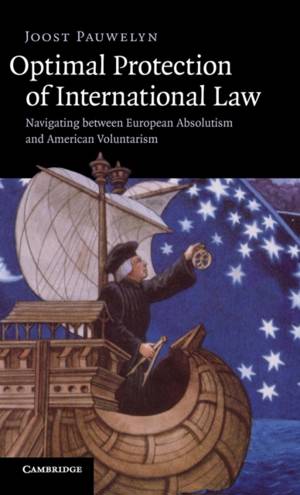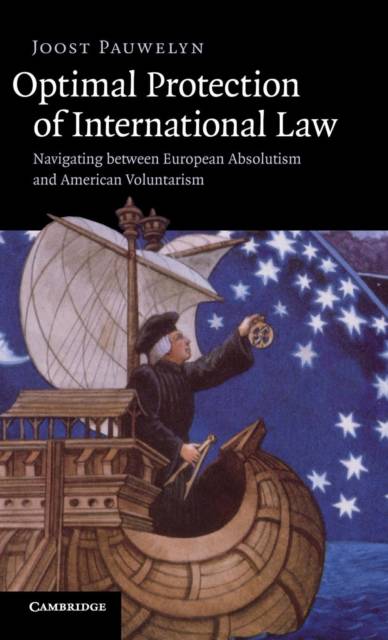
Je cadeautjes zeker op tijd in huis hebben voor de feestdagen? Kom langs in onze winkels en vind het perfecte geschenk!
- Afhalen na 1 uur in een winkel met voorraad
- Gratis thuislevering in België vanaf € 30
- Ruim aanbod met 7 miljoen producten
Je cadeautjes zeker op tijd in huis hebben voor de feestdagen? Kom langs in onze winkels en vind het perfecte geschenk!
- Afhalen na 1 uur in een winkel met voorraad
- Gratis thuislevering in België vanaf € 30
- Ruim aanbod met 7 miljoen producten
Zoeken
Optimal Protection of International Law
Navigating between European Absolutism and American Voluntarism
Joost Pauwelyn
Hardcover | Engels
€ 116,95
+ 233 punten
Uitvoering
Omschrijving
Assume, for a moment, that the necessary tools are available to induce or even force states to comply with international law. In such a state of affairs, how strongly should international law be protected? More specifically, how easy should it be to change international law? Should treaties be specifically performed or should states be given an opportunity to 'pay their way out'? In the event of states violating their commitments, what kind of back-up enforcement or sanctions should be imposed? Joost Pauwelyn uses the distinction between liability rules, property protection and inalienable entitlements as a starting point for a new theory of variable protection of international law, placed at the intersection between 'European absolutism' and 'American voluntarism'. Rather than undermining international law, variable protection takes the normativity of international law seriously and calibrates it to achieve maximum welfare and effectiveness at the lowest cost to contractual freedom and legitimacy.
Specificaties
Betrokkenen
- Auteur(s):
- Uitgeverij:
Inhoud
- Aantal bladzijden:
- 270
- Taal:
- Engels
Eigenschappen
- Productcode (EAN):
- 9780521516822
- Verschijningsdatum:
- 23/10/2008
- Uitvoering:
- Hardcover
- Formaat:
- Genaaid
- Afmetingen:
- 140 mm x 216 mm
- Gewicht:
- 476 g

Alleen bij Standaard Boekhandel
+ 233 punten op je klantenkaart van Standaard Boekhandel
Beoordelingen
We publiceren alleen reviews die voldoen aan de voorwaarden voor reviews. Bekijk onze voorwaarden voor reviews.









